
Caspar David Friedrich, Wanderer Above the Sea of Fog, 1818
Desiderata
This prose poem, written in 1927 by the American author Max Ehrmann, has a curious air of familiarity about it. Perhaps this is because so many people have seen it before - pinned up on a fridge door, hanging on the wall of a restaurant, or in some other unlikely place? It could also be because the wisdom it communicates consists of truths we already know, somewhere deep inside. The words resonate with us so powerfully because we intuitively know that they make sense. Sometimes, below a copy, you will read something like “found in a monastery in 1207” or another caption designed to add a false mystique to the poem's message. Does it really matter where it was found? We can indeed come across enlightening ideas when reading a lofty text from an apparent authority, but can just as easily arrive at them in conversation with a friend or chance upon them in an episode of Coronation Street. The Desiderata reminds us of the importance of recognising the truth that we encounter, as well as that which dwells within us. I always feel grounded after reading this poem which has the character of a brief, guided meditation and am pleased to include it h
Go placidly amid the noise and haste, and remember what peace there may be in silence.
As far as possible without surrender be on good terms with all persons.
Speak your truth quietly and clearly; and listen to others, even the dull and ignorant; they too have their story.
Avoid loud and aggressive persons, they are vexatious to the spirit.
If you compare yourself with others, you may become vain and bitter; for always there will be greater and lesser persons than yourself.
Enjoy your achievements as well as your plans.
Keep interested in your career, however humble; it is a real possession in the changing fortunes of time.
Exercise caution in your business affairs; for the world is full of trickery.
But let this not blind you to what virtue there is; many persons strive for high ideals; and everywhere life is full of heroism.
Be yourself.
Especially, do not feign affection.
Neither be critical about love; for in the face of all aridity and disenchantment it is as perennial as the grass.
Take kindly the counsel of the years, gracefully surrendering the things of youth.
Nurture strength of spirit to shield you in sudden misfortune. But do not distress yourself with imaginings.
Many fears are born of fatigue and loneliness. Beyond a wholesome discipline, be gentle with yourself.
You are a child of the universe, no less than the trees and the stars; you have a right to be here.
And whether or not it is clear to you, no doubt the universe is unfolding as it should.
Therefore be at peace with God, whatever you conceive Him to be, and whatever your labors and aspirations, in the noisy confusion of life keep peace with your soul.
With all its sham, drudgery and broken dreams, it is still a beautiful world. Be careful. Strive to be happy.
'The Road Less Travelled' by M. Scott Peck
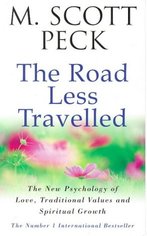
I warmly recommend M. Scott Peck’s The Road Less Travelled to anyone who is interested in self-discovery and personal growth. It was first published in 1978 and is a really wonderful book, full of insight, often passed from friend to friend. Written in accessible, everyday language, it presents helpful ideas on topics as varied as: how we are affected by our childhoods, the myth of romantic love, depression, spirituality and how to find happiness in the world as an independent, well functioning human being. This is definitely a timeless book, as relevant today as it was back then, helpful for anyone seeking their true path in life.
'Choice Theory' by Dr William Glasser
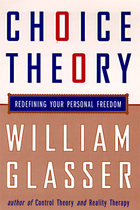
Dr William Glasser’s Choice Theory, is a fantastic and truly eye-opening book which challenges the reader to let go of many preconceptions they may have about life and relationships. Glasser urges us to abandon external control psychology – the belief that we can control and manipulate other people to get what we want, which inevitably harms, and can ultimately destroy, our important relationships. Instead, he invites us to embrace a system of internal control which involves taking full responsibility for what we do and for how we feel. Letting go of old ‘deadly habits’ like blaming and criticizing others might be difficult, but Glasser offers us caring alternatives that can help us to feel happier and more fulfilled in our relationships, in our work and in every aspect of our lives.
'Man's Search for Meaning' by Viktor Frankl
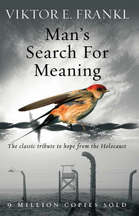
It is difficult to write a review that would do justice to this special book. Viktor Frankl was an Austrian psychiatyrist who was imprisoned in the concentration camps of Auschwitz and Kaufering during World War II. The precious manuscript he was working on before his internment was confiscated by German soldiers, so he set about rewriting it on scraps of salvaged paper, utilizing experiences and observations from his captivity. Frankl writes with astonishing objectivity about the torments he both endured and witnessed and outlines the psychological stages marking the process by which human beings were dehumanized. In this remarkable book, he gives us a whole philosophy of life, one based on personal responsibility, cherished freedom, compassion and awareness of our power of choice. Frankl teaches us that meaning can be salvaged from even the most awful suffering and the fundamental principles he describes form the basis of his own therapeutic model – Logotherapy – which centers on life meaning. ‘Man’s Search for Meaning’ is an incredible story of survival and the triumph of the human spirit.
'Selfhood' by Dr Terry Lynch
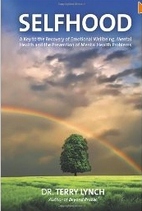
In this superb self-help book, Dr Terry Lynch, author of bestseller ‘Beyond Prozac’, offers the reader a fascinating and comprehensive account of the importance of our identity and state of being in the world. We are presented with a very developed and all-encompassing concept of selfhood, incorporating every dimension of how we experience ourselves as human beings. Lynch argues that in order for people to have a strong sense of self they need to be confident about their ability to meet their fundamental human needs. These needs cross a wide spectrum and correspond to key aspects of the person such as our physical, spiritual, relational, social, sexual, psychological and emotional self. When these needs are not met, whether in childhood or adult life, the result is a weakening of the individual’s sense of self and a deficit in the person’s experience of themself as a capable, confident, and complete human being with intrinsic worth. The best feature of this book is the numerous practical exercises, based on Dr Lynch’s extensive clinical experience, designed to assist the reader in recovering lost aspects of selfhood. So, this is really a workbook – and it is a brilliant one at that.
'My Approach to Counselling and Psychotherapy' by Ramesh Ramsahoye
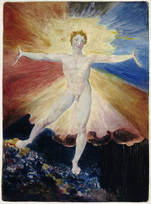
Please click on the image to download this free book.
